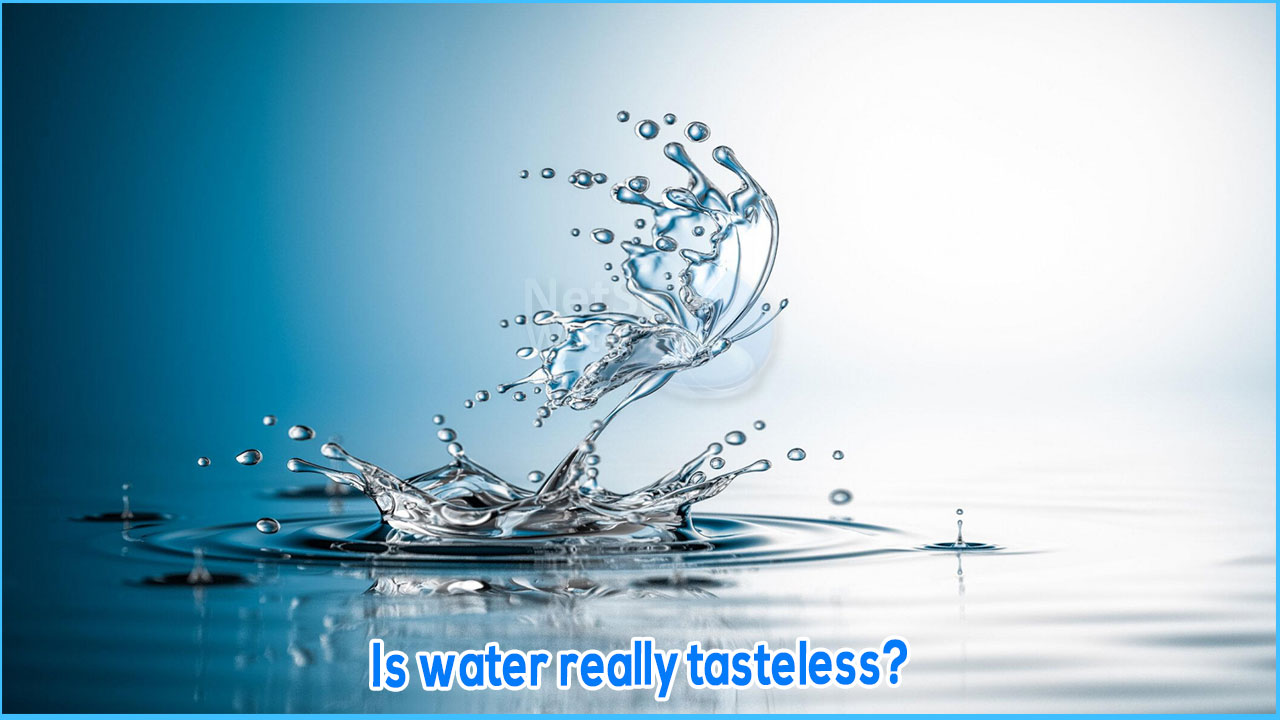Let’s give it a glance!
Philosophers have claimed that water has no flavour for thousands of years. They described it as a starting point and null condition for the perception of taste. “What water is to tongues, darkness is to eyes and silence is to ears. Water as a natural material tends to be tasteless," Aristotle stated. It just acts as a vehicle for flavour in his opinion. However, scientists later discovered that a sip of pure distilled water might have a distinct flavour. Some people thought it was harsh, while others thought it was bland. By the 1920s, there was accumulating evidence that water changes flavour based on what you've just eaten.
After putting something acidic on your tongue, take a sip of water, and it might taste a touch of sweet. It may have a sense of bitterness if you drink it after eating salt. Yale psychologist Linda Bartoshuk wrote a series of publications on the so-called aftertastes of water in the 1960s and 1970s. Taste cells become accustomed to a stimulus when a person eats or drinks, according to Bartoshuk.
The cells return to an active state after washing out the taste with water. It looks like a colour's after-image when viewed against a sheet of white paper. To get the same effect, you don't even have to eat or drink anything. Bartoshuk discovered that a person's saliva can improve the flavour of water. Your tongue will be awash in slightly salty spit as you go about your day. Because your mouth has become accustomed to saliva, it has lost its flavour. However, if you rinse away the spit with water, your cells will revert to a bitter or sour flavour with your next sip.
It's tough to explain the flavour of water because it's intrinsically difficult to do so. Taste is a highly subjective sense, and most of us can tell when drinking water tastes good or bad. The mineral content of water is one of the most important variables impacting taste. Comparing the flavour of distilled water to conventional tap water or mineral water is the easiest approach to see how minerals affect the taste of water. Because dissolved solids have been removed from distilled water, it tastes bland or flat to most people. This is especially true when comparing it to mineral-rich water.
The amount of total dissolved solids (TDS) in a sample of water is occasionally used to represent the mineral content of your water. A higher TDS indicates that your water contains more minerals, whereas a lower TDS indicates that your water contains less minerals. Minerals aren't the only thing that affects the flavour of your water. Some of the additional contaminants in your water that could affect the flavour, as well as how to improve the taste of your water if these contaminants are present can be illustrated as:
Disinfectants
A filtration system incorporating activated carbon will be required to remove disinfectants and their by-products from your water. Disinfectants and their metabolites, as well as a range of other compounds, are very well captured by activated carbon.
Hydrogen sulphide
Hydrogen sulphide is a gas that occurs naturally and is usually detected in tap water. Although the Environmental Protection Agency does not consider hydrogen sulphide to be a major or secondary pollution, it may have certain negative consequences in addition to the terrible odour and taste.An activated carbon filter system is the most effective remedy if your water has a sulphur or rotten egg odour.
Sodium and chlorides
It's a good idea to notify your water supplier if your tap water suddenly becomes salty, as this could indicate the presence of undesired chemicals in your water supply. You'll want to use a reverse-osmosis (RO) system if your water is always slightly salty. A membrane is used in RO systems to filter out microscopic pollutants such as chloride and sodium.
A water test with a water professional is the best approach to find out what's in your water. A water test can reveal which impurities are affecting the flavour of your water, and skilled experts can explain the various filtration systems available to give clean, filtered drinking water that is crisp and pleasant.




